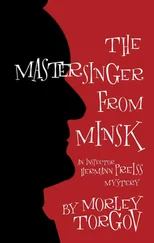Christopher Morley - Where the Blue Begins
Здесь есть возможность читать онлайн «Christopher Morley - Where the Blue Begins» весь текст электронной книги совершенно бесплатно (целиком полную версию без сокращений). В некоторых случаях можно слушать аудио, скачать через торрент в формате fb2 и присутствует краткое содержание. Жанр: Проза, на английском языке. Описание произведения, (предисловие) а так же отзывы посетителей доступны на портале библиотеки ЛибКат.
- Название:Where the Blue Begins
- Автор:
- Жанр:
- Год:неизвестен
- ISBN:нет данных
- Рейтинг книги:5 / 5. Голосов: 1
-
Избранное:Добавить в избранное
- Отзывы:
-
Ваша оценка:
- 100
- 1
- 2
- 3
- 4
- 5
Where the Blue Begins: краткое содержание, описание и аннотация
Предлагаем к чтению аннотацию, описание, краткое содержание или предисловие (зависит от того, что написал сам автор книги «Where the Blue Begins»). Если вы не нашли необходимую информацию о книге — напишите в комментариях, мы постараемся отыскать её.
Where the Blue Begins — читать онлайн бесплатно полную книгу (весь текст) целиком
Ниже представлен текст книги, разбитый по страницам. Система сохранения места последней прочитанной страницы, позволяет с удобством читать онлайн бесплатно книгу «Where the Blue Begins», без необходимости каждый раз заново искать на чём Вы остановились. Поставьте закладку, и сможете в любой момент перейти на страницу, на которой закончили чтение.
Интервал:
Закладка:
Gissing knocked at Captain Scottie's cabin.
“We are taking to the boats,” he said.
“Goad!” cried the skipper. “Wull it be a colleesion?”
“All's clear and the davits are outboard,” said Gissing. He had been studying the manual of boat handling in one of the nautical volumes in the chart-room.
“Auld Hornie!” ejaculated the skipper. “We'll no can salve the specie! Make note of her poseetion, Mr. Gissing!” He hastened to gather his papers, the log, a chronometer, and a large canister of tobacco.
“The Deil's intil't,” he said as he hastened to his boat. “I had yon pragmateesm of yours on a lee shore. Two-three hours, I'd have careened ye.”
Gissing was ready with his megaphone. From the wing of the bridge he gave the orders.
“Lower away!” and the boats dropped to the passenger rail.
“Avast lowering!” Each boat took in her roster of passengers, who were in high spirits at this unusual excitement.
“Mind your painters! Lower handsomely!”
The boats took the water in orderly fashion, and were cast off. Remaining members of the crew swarmed down the falls. The bandsmen had a boat to themselves, and resumed their tune as soon as they were settled.
Gissing, left alone on the ship, waved for silence.
“Look sharp, man!” cried Captain Scottie. “Honour's satisfied! Take your place in the boat!”
The passengers applauded, and there was quite a clatter of camera shutters as they snapped the Pomerania looming grandly above them.
“Boats are all provisioned and equipped,” shouted Gissing. “I've broadcasted your position by radio. The barometer's at Fixed Fair. Pull off now, and 'ware the screw.”
He moved the telegraph handle to Dead Slow, and the Pomerania began to slip forward gently. The boats dropped aft amid a loud miscellaneous outcry. Mr. Pointer was already examining the horizon. Captain Scottie, awakened to the situation, was uttering the language of theology but not the purport.
“Don't stand up in the boats,” megaphoned Gissing. “You're quite all right, there's a ship on the way already. I wirelessed last night.”
He slid the telegraph to slow, half, and then full. Once more the ship creamed through the lifting purple swells. The little flock of boats was soon out of sight.
Alone at the wheel, he realized that a great weight was off his mind. The responsibility of his position had burdened him more than he knew. Now a strange eagerness and joy possessed him. His bubbling wake cut straight and milky across the glittering afternoon. In a ruddy sunset glow, the sea darkened through all tints of violet, amethyst, indigo. The horizon line sharpened so clearly that he could distinguish the tossing profile of waves wetting the sky. “A red sky at night is the sailor's delight,” he said to himself. He switched on the port and starboard lights and the masthead lanterns, then lashed the wheel while he went below for supper. He did not know exactly where he was, for he seemed to have steamed clean off the chart; but as he conned the helm that evening, and leaned over the lighted binnacle, he had a feeling that he was not far from some destiny. With cheerful assurance he lashed the wheel again, and turned in. He woke once in the night, and leaped from the hammock with a start. He thought he had heard a sound of barking.
CHAPTER SIXTEEN
The next morning he sighted land. Coming out on the bridge, the whole face of things was changed. The sea-colour had lightened to a tawny green; gulls dipped and hovered; away on the horizon lay a soft blue contour. “Land Ho!” he shouted superbly, and wondered what new country he had discovered. He ran up a hoist of red and yellow signal flags, and steered gaily toward the shore.
It had grown suddenly cold: he had to fetch Captain Scottie's pea-jacket to wear at the wheel. On the long spilling crests, that crumbled and spread running layers of froth in their hurry shoreward, the Pomerania rode home. She knew her landfall and seemed to quicken. Steadily swinging on the jade-green surges, she buried her nose almost to the hawse-pipes, then lifted until her streaming forefoot gleamed out of a frilled ruffle of foam.
Gissing, too, was eager. A tingling buoyancy and impatience took hold of him: he fidgeted with sheer eagerness for life. Land, the beloved stability of our dear and only earth, drew and charmed him. Behind was the senseless, heartbreaking sea. Now he could discern hills rising in a gilded opaline light. In the volatile thin air was a quick sense of strangeness. A new world was close about him: a world that he could see, and feel, and inhale, and yet knew nothing of.
Suddenly a great humility possessed him. He had been froward and silly and vain. He had shouted arrogantly at Beauty, like a noisy tourist in a canyon; and the only answer, after long waiting, had been the paltry diminished echo of his own voice. He thought shamefully of his follies. What matter how you name God or in what words you praise Him? In this new foreign land he would quietly accept things as he found them. The laughter of God was too strange to understand.
No, there was no answer. He was doubly damned, for he had made truth a mere sport of intellectual riddling. The mind, like a spinning flywheel of fatigued steel, was gradually racked to bursting by the conflict of stresses. And yet: every equilibrium was an opposure of forces. Rotation, if swift enough, creates amazing stability: he had seen how the gyroscope can balance at apparently impossible angles. Perhaps it was so of the mind. If it twirls at high speed it can lean right out over the abyss without collapse. But the stationary mind — he thought of Bishop Borzoi — must keep away from the edge. Try to force it to the edge, it raves in panic. Every mind, very likely, knows its own frailties, and does well to safeguard them. At any rate, that was the most generous interpretation. Most minds, undoubtedly, were uneasy in high places. They doubted their ability to refrain from jumping off. How many bones of fine intellects lay whitening at the foot of the theological cliff — It seemed to be a lonely coast, and wintry. Patches of snow lay upon the hills, the woods were bare and brown. A bottle-necked harbour opened out before him. He reduced the engines to Dead Slow and glided gaily through the strait. He had been anxious lest his navigation might not be equal to the occasion: he did not want to disgrace himself at this final test. But all seemed to arrange itself with enchanted ease. A steep ledge of ground offered a natural pier, with tree-stumps for bollards. He let her come gently beyond the spot; reversed the propellers just at the right time, and backed neatly alongside. He moved the telegraph handle to Finished With Engines ; ran out the gangplank smartly, and stepped ashore. He moored the vessel fore and aft, and hung out fenders to prevent chafing.
The first thing to do, he said to himself, is to get the lie of the land, and find out whether it is inhabited.
A hillside rising above the water promised a clear view. The stubble grass was dry and frosty, after the warm days at sea the chill was nipping; but what an elixir of air! If this is a desert island, he thought, it will be a glorious discovery. His heart was jocund with anticipation. A curious foreign look in the landscape, he thought; quite unlike anything — Suddenly, where the hill arched against pearly sky, he saw narrow thread of smoke rising. He halted in alarm. Who might this be, friend or foe? But eager agitation pushed him on. Burning to know, he hurried up to the brow of the hill.
The smoke mounted from a small bonfire of sticks in a sheltered thicket, where a miraculous being — who was, as a matter of fact, a rather ragged and dingy vagabond — was cooking a tin of stew over the blaze.
Читать дальшеИнтервал:
Закладка:
Похожие книги на «Where the Blue Begins»
Представляем Вашему вниманию похожие книги на «Where the Blue Begins» списком для выбора. Мы отобрали схожую по названию и смыслу литературу в надежде предоставить читателям больше вариантов отыскать новые, интересные, ещё непрочитанные произведения.
Обсуждение, отзывы о книге «Where the Blue Begins» и просто собственные мнения читателей. Оставьте ваши комментарии, напишите, что Вы думаете о произведении, его смысле или главных героях. Укажите что конкретно понравилось, а что нет, и почему Вы так считаете.










